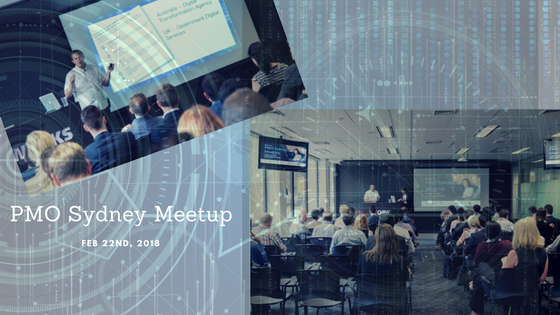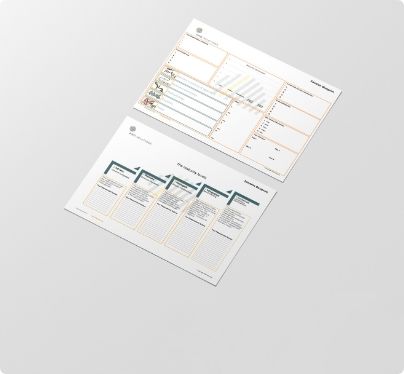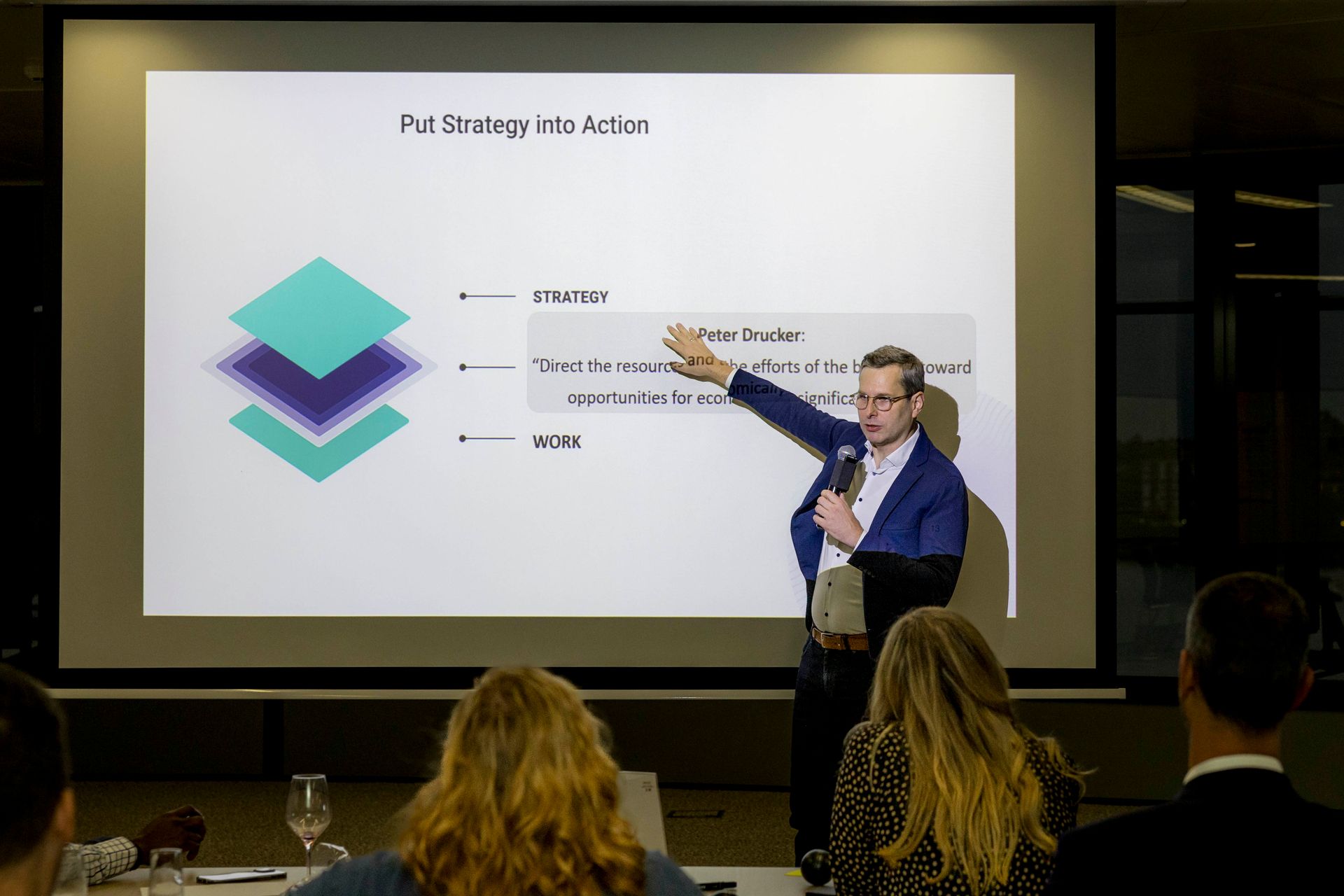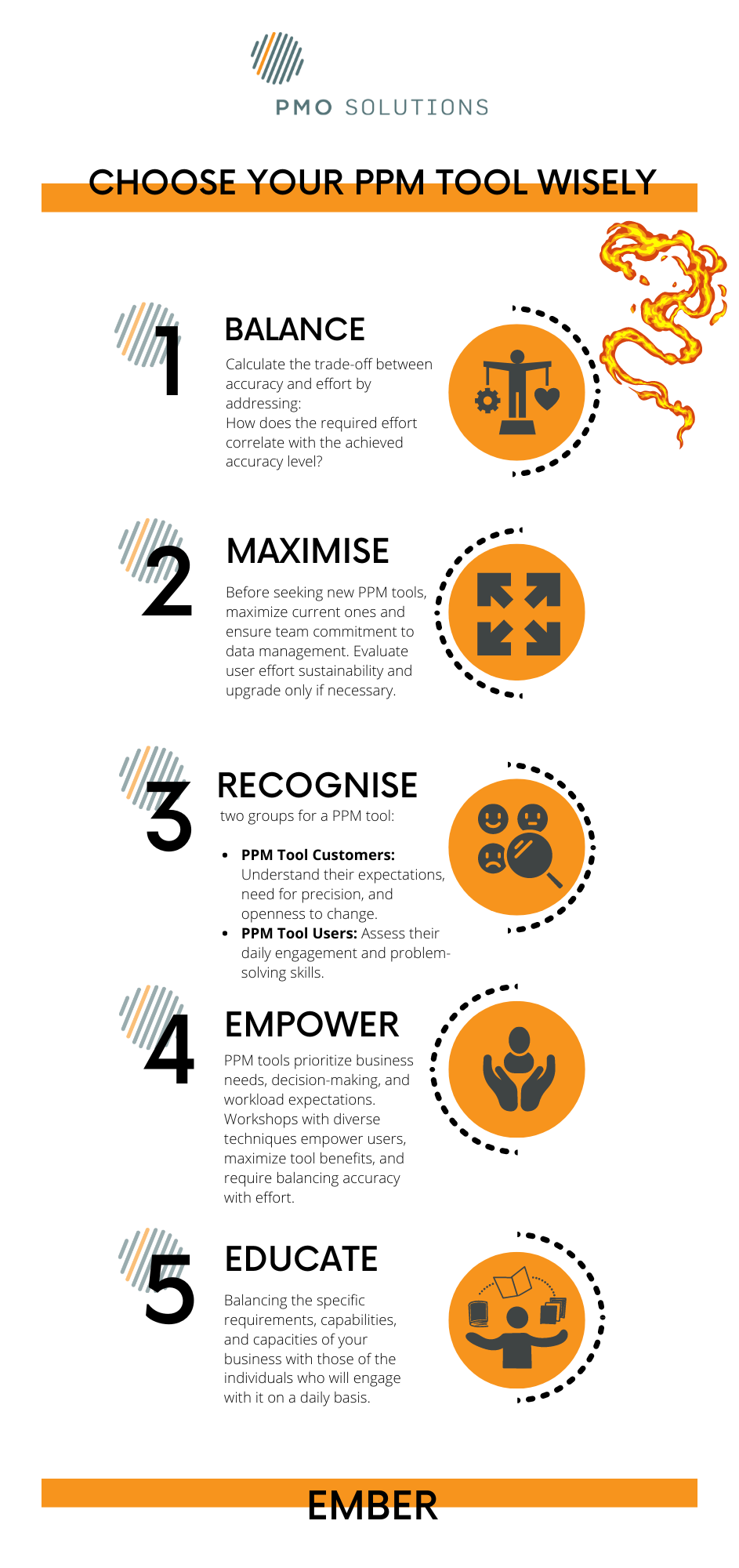07 March 2018
Insights on Digital Transformation and PMO

The Digital Transformation session's principal objective was to highlight five areas which are not commonly discussed, let alone challenged when embarking on a Digital Transformation journey.
One of the key objectives of Project Management Office (PMO) is to provide PMO solutions and services that help businesses grow and meet their strategical objectives. In this evolving digital world, PMOs need to be future-ready, identifying the big picture and able to propose the best solutions.
Your PMO might already be involved in technological transformations or support the business in moving forward with digital solutions. In any situation, however, there are some vital elements one needs to be aware of regarding PMOs role in facilitating the change in a business.
In February PMO Sydney Meet up session, organised by PMO Sydney Meet up organising team and sponsored by EPM Partners, Ralf Finchett Jnr presented the five main challenges commonly encountered in the digital transformation journey, suggesting the following actions:New Paragraph
What Is Digital
And what is the difference between User Experience or new Service Design?
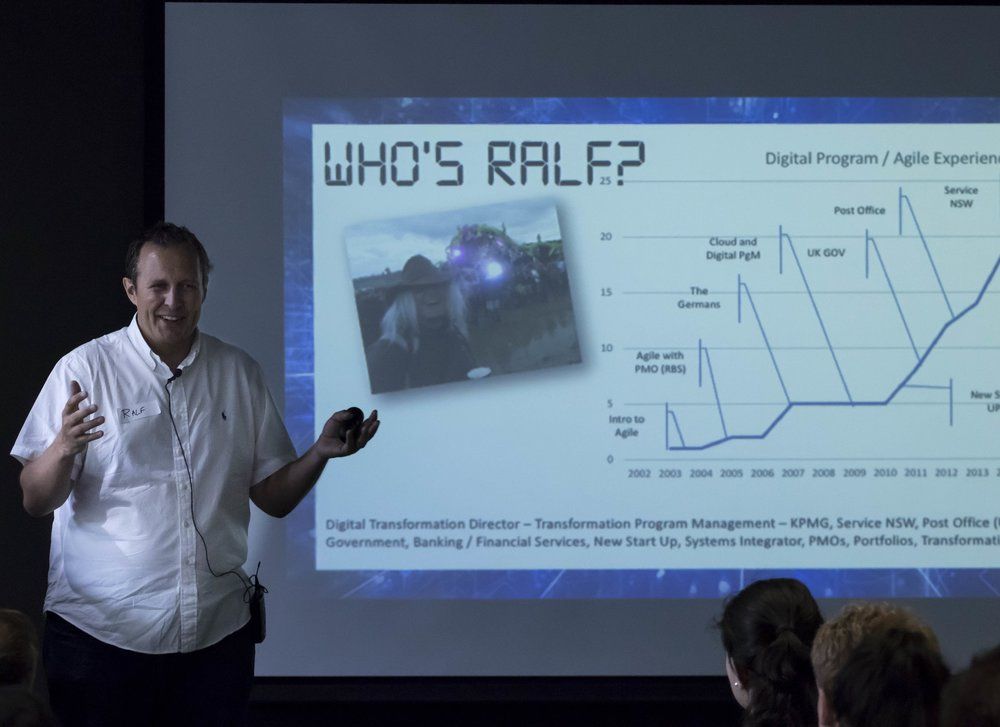
Today the meaning of 'digital' is more than taking a paper-based transaction and placing them online. As a PMO advisor, it is necessary to define digitalisation in the business and propose a value-add solution to the business to improve efficiency and effectiveness'. This is an essential component of PMO encountering Digital Transformation.
Defining the Transformation has to come from the very top, does the Executive Leadership truly understand what transformation means to their organisation and their customers? Has a team been empowered to ensure the customer is at the centre of the new user experience?
Does the organisation's leadership understand the various channels of support (Omni channel) and the ways the organisation needs to evolve to give the most appropriate support for digital transactions?
Delivery Approach
More than just Agile!
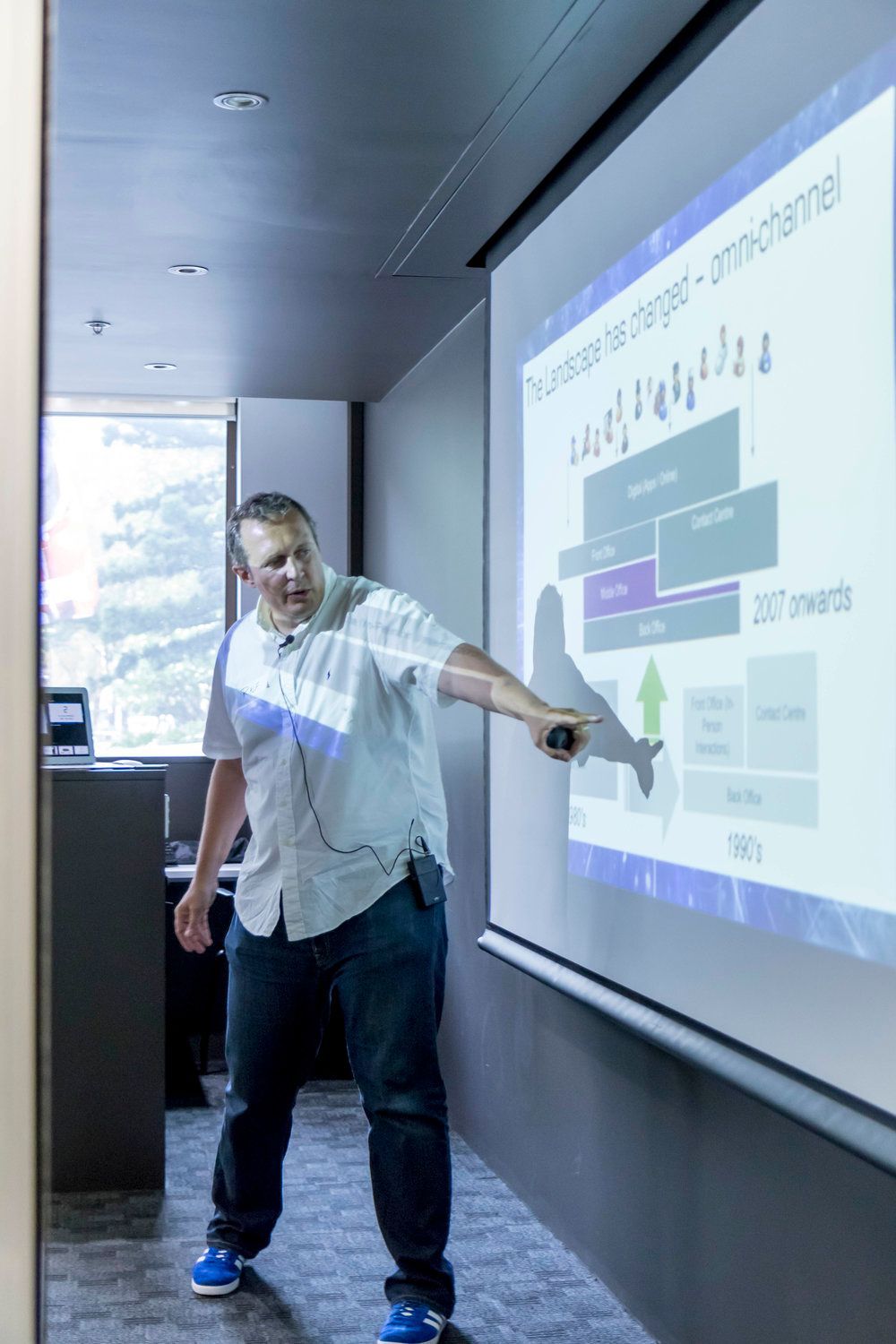
Agile is predominantly a team-based approach for iterative design and development of usable products (use cases). Agile works best when operating within a defined outcome. Using a Delivery Approach such as the Digital Transformation Agency (DTA) or Government Digital Services (GDS-UK) helps to set expectations of what outcome will be derived from the sprints in an Agile approach.
Discovery, Alpha, Beta, Live is such an approach whereby the sprints can fit within the lifecycle phases.
Not everything should be delivered with an Agile approach. Sometimes making an informed decision upfront can save pain later down the line. Asking yourself such questions up front:
- How complex is the legacy platform?
- Is the desired outcome fixed or flexible with its design?
- Is the environment complex? What are the dependencies? Are there too many to handle?
- Can the outputs/products be iterated or thrown away to be restarted?
Not everything suits an Agile Delivery method, and not all organisations are Spotify, Facebook or Uber. These 'poster' examples of Agile tend to have one or two channels, one product, and new(ish) systems. Many organisations have multiple channels, aging legacy systems, highly legislative environments, and complex use cases. Be an Agile realist, not an Agile evangelist.
One of the primary roles of the PMO is to create an interactive environment, define the reason for the change and the methods of delivery. It suggests agile or waterfall and accommodates in a way that best suits the corporate environment, which in turn allows a sufficient creation of the production line.
'Understand the different pace of change and delivery across policy / legal areas, new user interfaces and integrations/change into legacy systems. Try and break these dependencies to ensure efficient delivery.
Decision Making

To efficiently implement the change, PMO needs to provide analytical data and due diligence to decision makers. The data presented here will be a reliable and referable guide to the business, particularly for enterprise companies who have large amounts of historical data.
The next step is to prioritise this data through volumetrics and value-metrics. to enable the decision making regarding the prioritisation, sequencing and development of the user journeys or transactions.
The PMO can also be best placed to ensure that decisions, especially design decisions are made on data and information. Design can be subjective but capturing the right metrics to prove if the new digital experience is superior to other designs can be critical in driving the model which brings the most value.
PMO must be transparent to show the reliability metrics for early decision-making steps. In digital transformation, the reactive firefighting approach is not the right approach!
One of the digital transformation challenges is how to present the transactions which can deliver the highest value or ROI from day one, especially for non-IT industries. The problems here surround showing the value and advising on the journey. This is not a straightforward discussion!
Skills And Knowledge
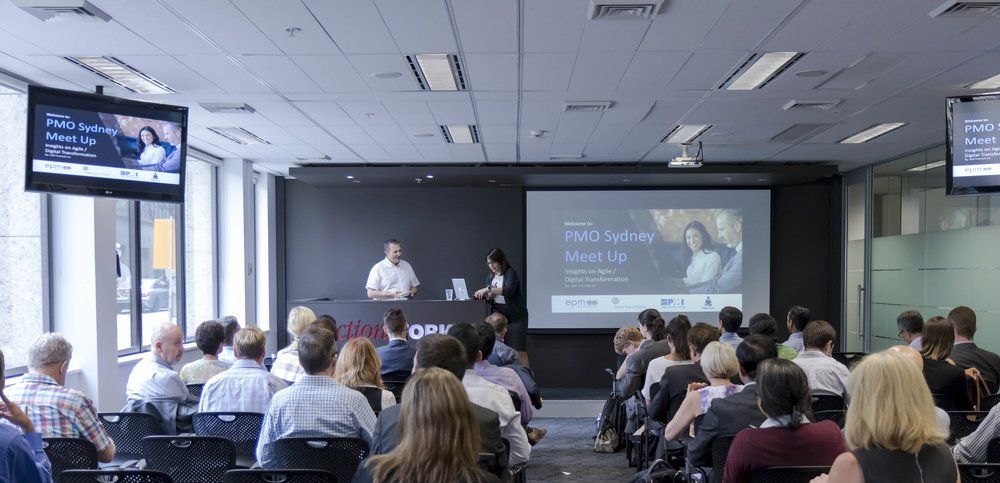
Technology and skills move quickly. PMO as the centre of excellence and the business enabler must continuously be looking to the future and identify skills required. With the current trend of AI (artificial intelligence), Block Chain, Voice Activation, the skills necessary for delivering digital often fall behind the current requirement.
Improving your PMO's competencies to be agile learners and integrated mentors will help to support the Digital Transformation.
Digitalisation is a mind shift for some people and change management helps to up-skill and implement these new skills.
Procurement

Procurement is almost the forgotten piece of digital transformation puzzle, especially at the beginning of the journey, yet the right procurement approach can help Digital Transformation success, and the wrong path could bring the whole transformation to a close. The integrated PMO Solution engages commercial and procurements from the outset, looking to avoid fixed price contracts when the early design and iterative development require flexibility with suppliers, partners, contractors and vendors.
The value add PMO in digital transformation understands that 'Change is a Constant' and helps planning with Value and Outcomes, but most importantly, helps create a new environment which creates new products, propose the right and suitable solutions and support business to deliver the services both effectively and also efficiently.
Book us a session to learn how our technology team is embeded to our PMO profesisonal and knowledge. We can accelerate your success with our integrated skill set, no doubt, let's meet !


